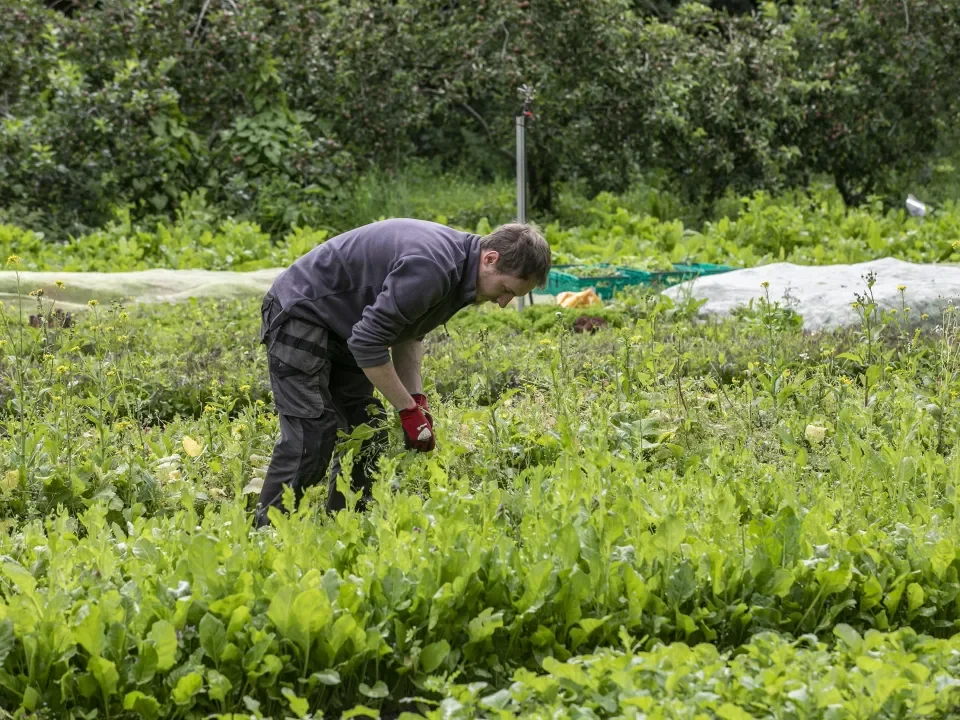
Sustainability at DCU

A person working in DCU's Community Garden on the University's Glasnevin campus. Pic: Kyran O'Brien/DCU
Support biodiversity
Sustainability is about more than climate change and emissions. What we do, buy and grow affects our natural environment, upon which all life on earth depends.
Our overexploitation of natural resources and our pollution of ecosystems contribute to biodiversity loss. Climate change is exacerbating this damage.
By making proactive choices to protect our natural environment, we help maintain vital biodiversity.
What you can do in your area
- Don’t mow - let it grow - in your own garden don’t mow lawns or at a minimum don’t mow a portion of your lawn - you can mow it once a year in October and let it lie for a couple of days to allow the seeds to fall - it can then be gathered and composted. Encourage your neighbors and local councils as well as your university to follow suit.
- Don’t sow - let it grow - the best way to help nature replenish itself is just to leave it alone so avoid seedbombs as these seeds are most likely not native to the area.
- Get to know your own environment and its inherent ecosystems - check out your local parks and waterways.
- Volunteer for at least one environment-related project in your area, such as a community garden workday or a beach/canal cleanup - link in with any Tidy Towns group - they are always looking for volunteers and it create a great community spirit.
What you buy
- Think about the source of your purchases – environmentally and ethically (e.g. how far did it have to travel to get to the store? Are a lot of resources required to make it)
- Shop local and in season.
- Make the switch to natural cleaning products – these can significantly reduce the pollutants going into our environment.
What you can grow
- Start your own vegetable patch at home.
- Try not to use peat compost (the bogs from which peat comes are great at naturally storing carbon, which we want to keep in the ground).
- Avoid any artificial herbicide, pesticides or fertilizers. Search instead for sustainable alternatives.
- Let your lawn grow to support the bees and some wildflowers.
- Plant a tree. Where possible, choose a native species.
